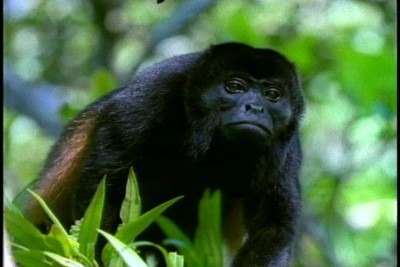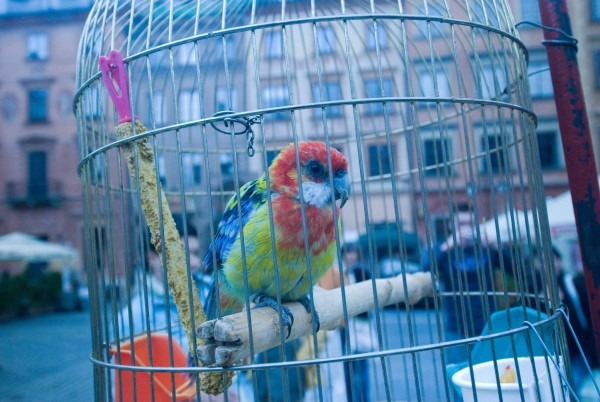Hence, the great bifurcation, a massive change of heart, that now hinges on a colossally important decision; a choice that rests solely upon us. Our duty of stewardship has been forcefully called into action, and awaiting its outcome are all those trillions of individual sentient beings whose lives depend on our common sense and common commitment.

Phenotypic variation, evolutionary quirks, twists and turns do not condemn or free us. Our choices and convictions alone are capable of that: of justice, and of some degree of freedom from pain, if we are lucky.
But common commitment and convictions towards what? We would argue that Pope Francis has made it abundantly clear. A commitment towards enlisting life-saving measures to protect the precious individuals, species, populations and habitats. A decision taken at this time, to provide thorough safety nets for all of those abstruse taxa, identified, unidentified, who (not that, but who –these are biographies, not merely biologies, as philosopher Tom Regan has long pointed out) are members of the greater biologically interdependent community: the vast assemblage of life-forms of which we are but one demonstrably agitated member.
But it is not our aim to simply wish upon a star or greater God for such ethical revivification. Rather, to actively reconstruct, from the ashes of a taxonomic Babel, a true ecological renaissance, a new human nature, whose guide to the ecologically perplexed has been handed down as a gift, as it were: a most lenient, legible, powerfully accessible document in the hands of all our humanity.
It would have added to this tour de force had the Pope also pointed towards the inextricable requirements of family planning within his Encyclical: the liberation of women and their children from unwanted pregnancies; the ecologically-devastating consumerism, pain and mortality associated with unwanted pregnancies. Without access to contraception, any ecological call to worship is a partly muted cry in the wilderness. It reminds us, and the Church, that there is still a looming sequel here. Nonetheless, Pope Francis has begun the job.
And with such a roadmap, however it may be tweaked – the addition of women’s rights, of contraception, of the massive realities of teen and unwanted pregnancies, of the desperate requirements for universal healthcare that firmly encompasses the easily available suite of options empowering women and young people to make informed choices about logical, safe and humane forms of contraception we then shall be in a position to honor a most comprehensive beacon from the Church leading toward a true ecological reconciliation.
To be in favor of saving and protecting the biosphere is, correspondingly, to embrace pro-choice. These are ecological similitudes.
Yes, it will be variously interpreted and re-confirmed, assimilated, rejected, and re-taken up. But, ultimately, this Encyclical will be embraced as basic to the future of our species, and all those we have the critical task of shepherding. We would fail to do so, says the Pope, at our own peril.
We are asked to assess the consequences to the biosphere of our words, our actions, our thoughts and intentions. To protect and safeguard Others. All Others. For they are ourselves.

in a Zoo in Yemen © M. C. Tobias
Even if a vast sector of the human community were unwilling to listen to the Pope, for whatever reason, at present one in every six persons on the planet are of a Catholic disposition, which translates into a critical mass of behavioral transformation. A percentage, logic dictates, that might just be sufficient to arrest, or at least slow down the Anthropocene (6th mass extinction) and propagate the preconditions for socioeconomic and political reform with a deep beneficence that might, hopefully, prove to be ecologically irreversible, a pandemic of virtue, if you will: a renaissance of goodness… Continue reading.
The views and opinions expressed through the MAHB Website are those of the contributing authors and do not necessarily reflect an official position of the MAHB. The MAHB aims to share a range of perspectives and welcomes the discussions that they prompt.
